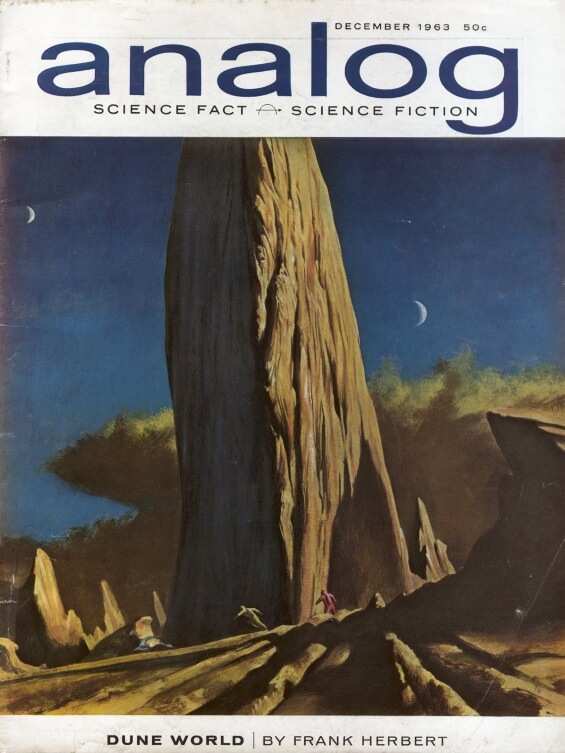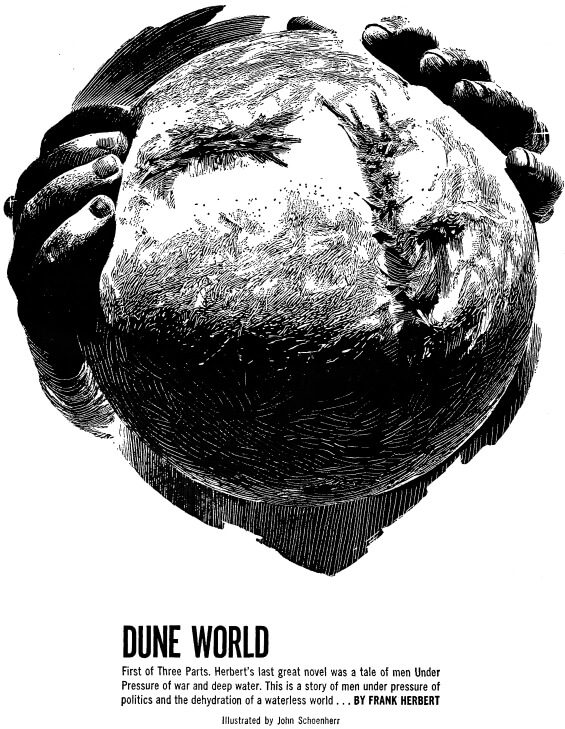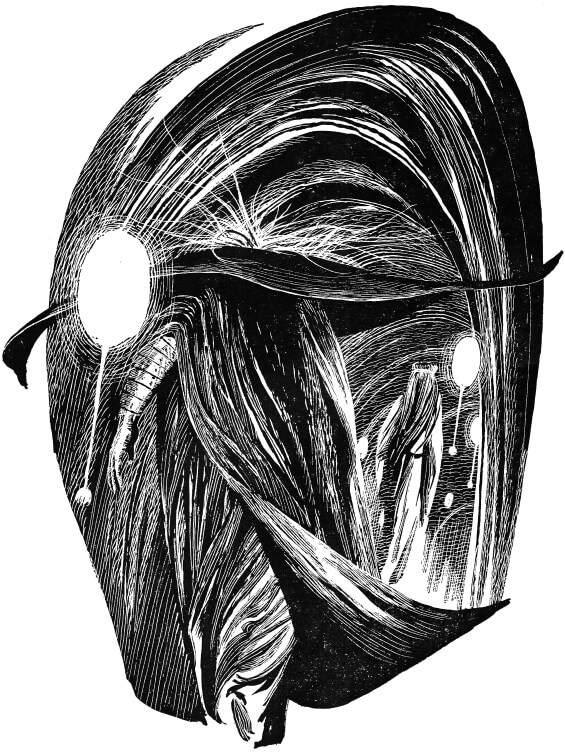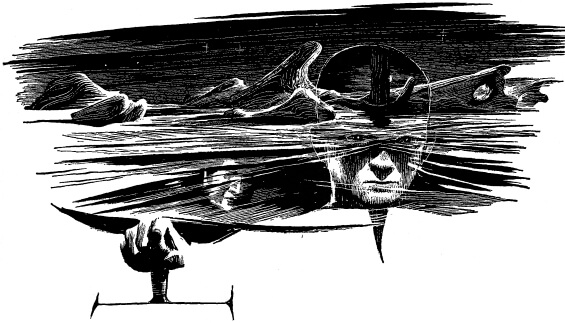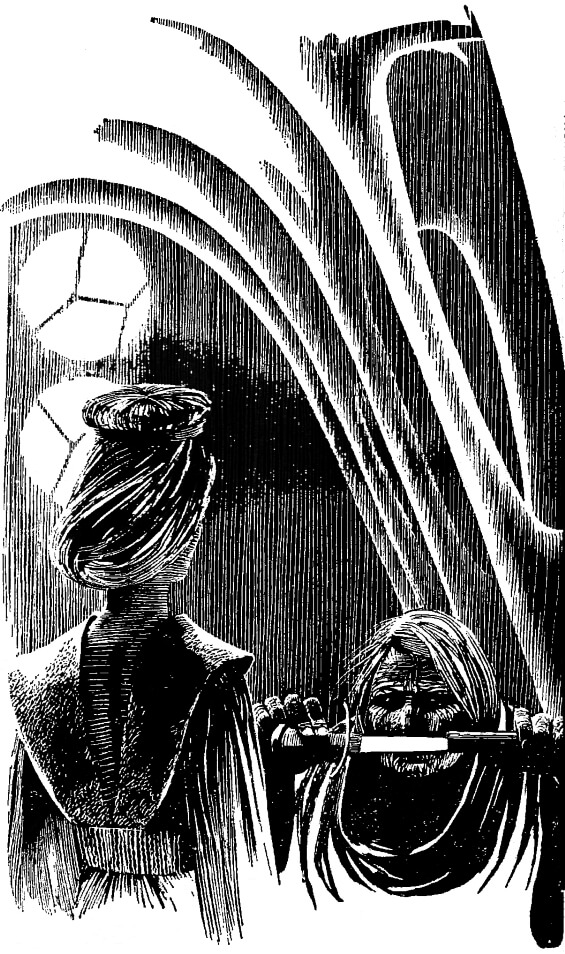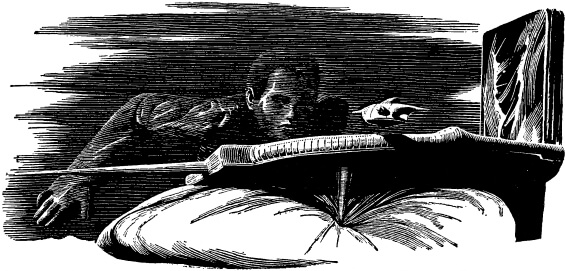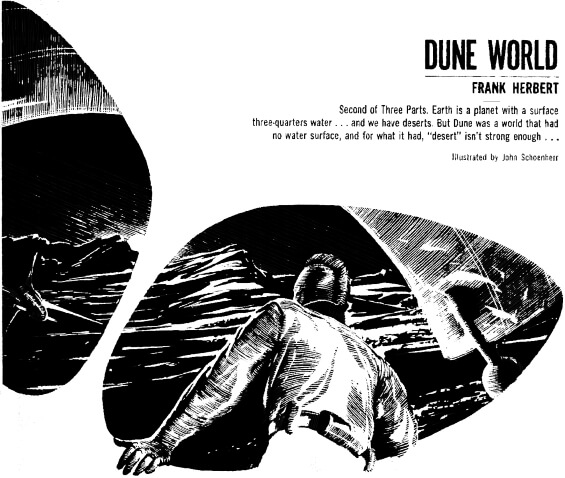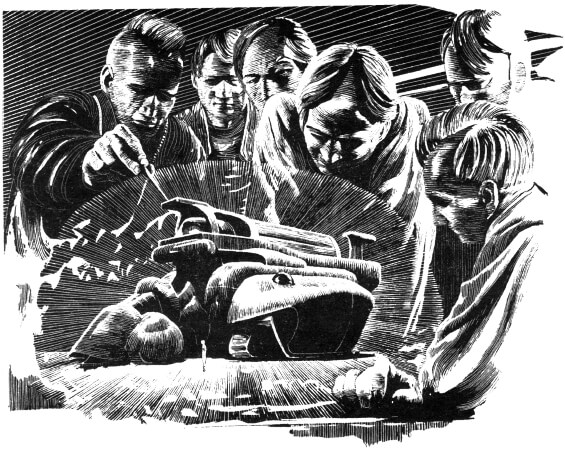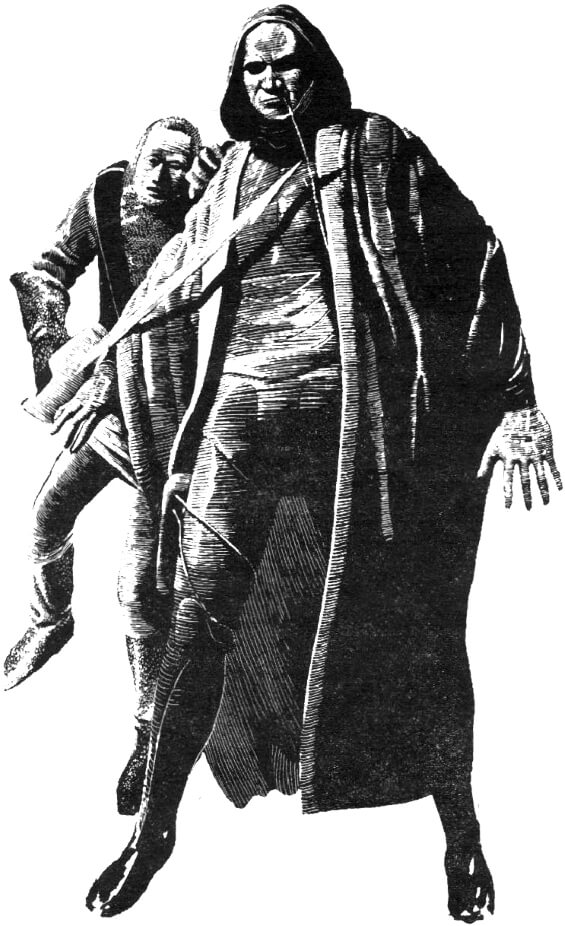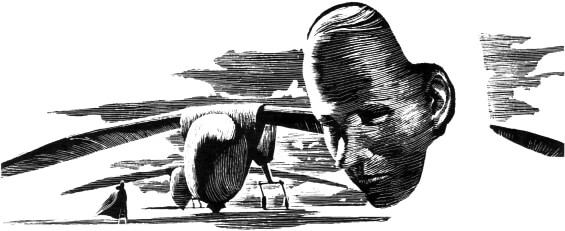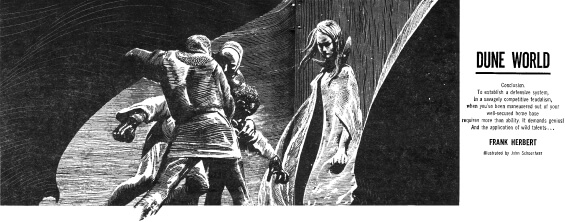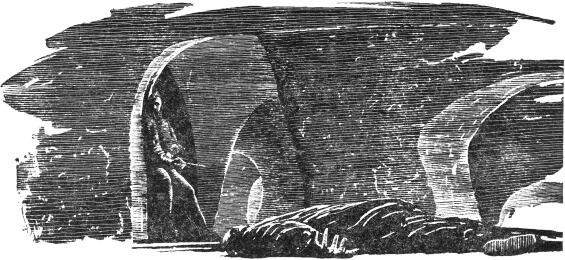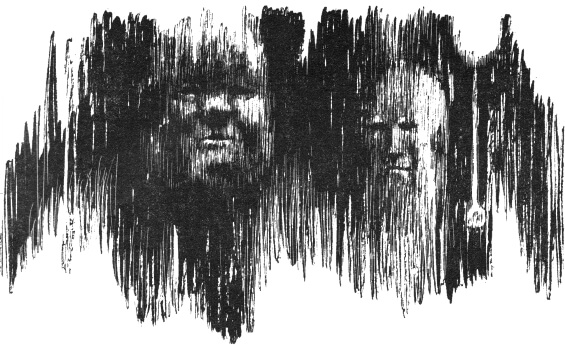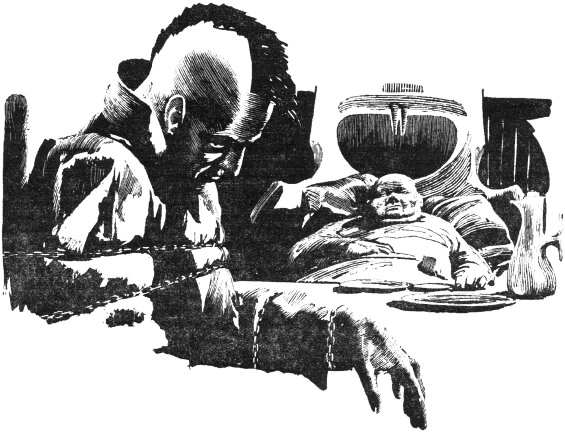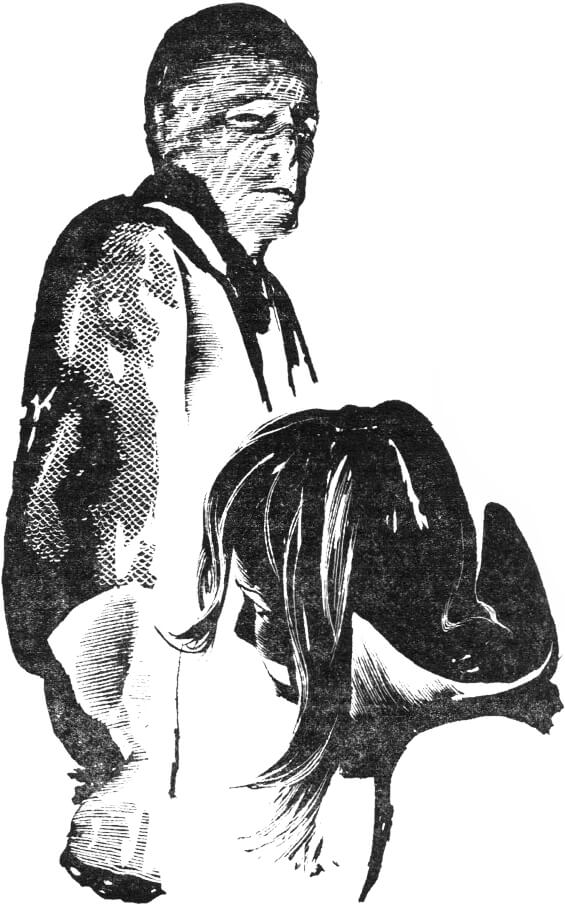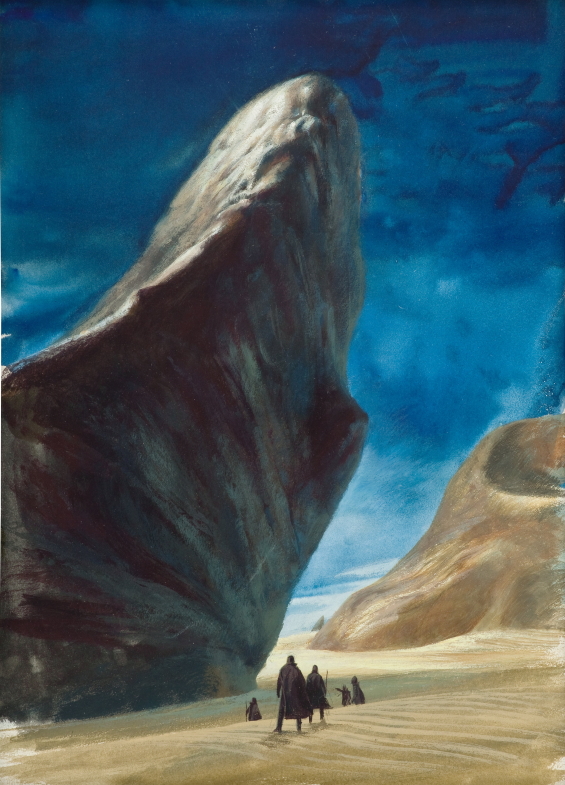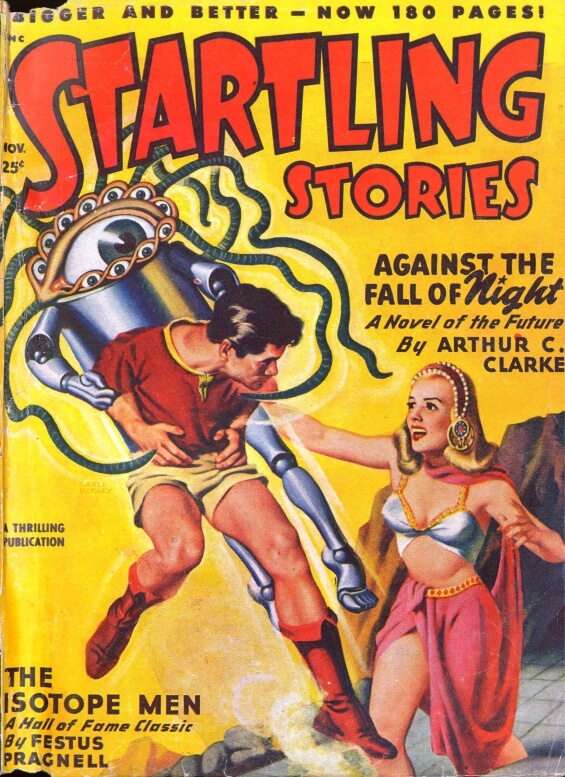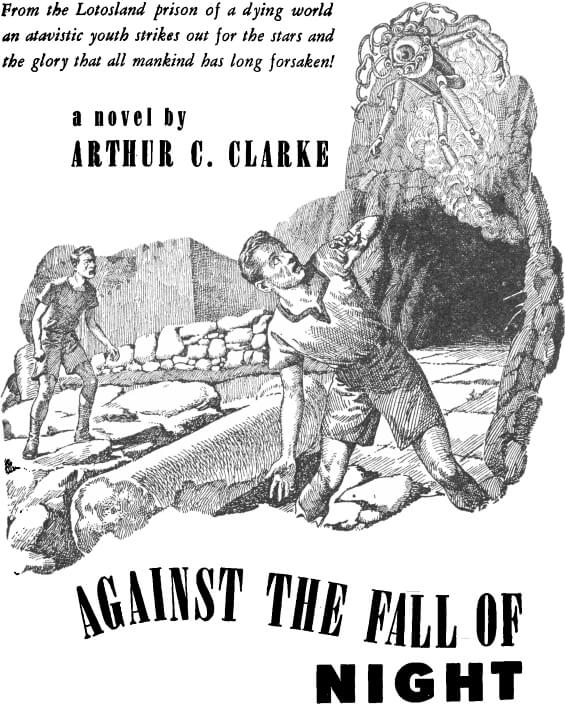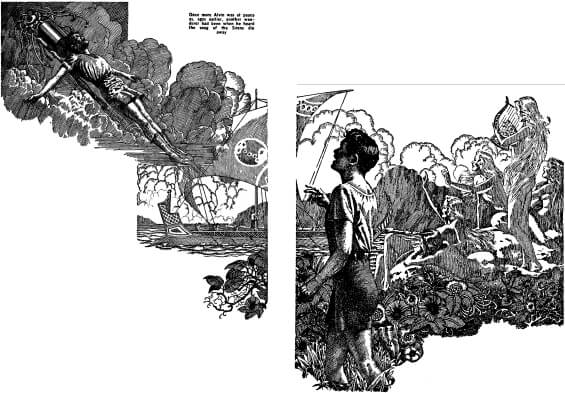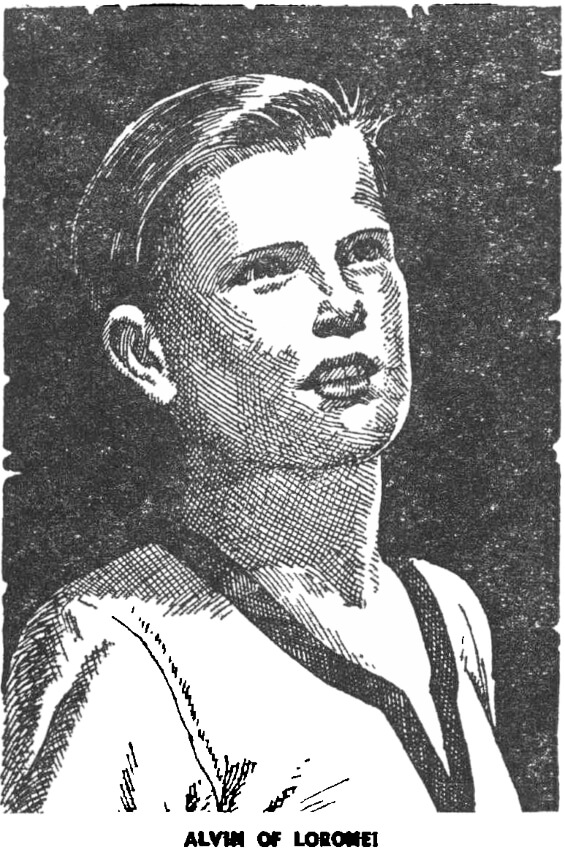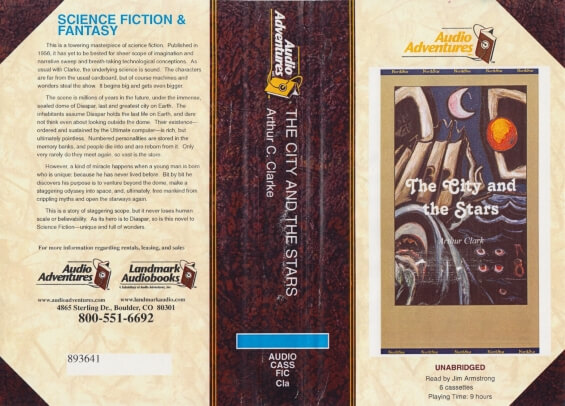Jesse, Paul Weimer, and Terence Blake talk about The Terminal Man by Michael Crichton
Talked about on today’s show:
Terry!, Playboy, March 1972, a novel in book form, where they features author, Playbill, the Jules Verne of our time, a Fellow at the Salk Institute, three pseudonyms, Dealing, a Warner Bros. release, a lot of money in 1972, re-write Frankenstein, rewriting Dracula, take my own life in 1973, 15,000 words per day, he’s going to direct, where Crichton starts ramping up, The Andromeda Strain was huge, 1971 film, directed by Robert Wise, Westworld (1973), that could have been a novel, very visual, Westworld RPG, it’s its own module that kills itself at the end, a wonderful one-shot, no one and dones, not anymore, take advantage of all of your successes, this weird phenomenon, the people who buy jigsaw puzzles, it’s like a romance novel, lacquer them, such a weird phenomenon, is this a science fiction novel?, arguing at the end, unless there is strong evidence, my Tolkien ripoff is a science fiction, not science fiction, speculation on what would happen, we have that technology, you might be scared, this stuff is being worked on, Terence wondered, a preparation for writing a science fiction story afterward, the question comes up, why?, why did he say it is his least favourite novel?, we can think of one that is worse, heavily didactic, the plagiarist?, a huge amount of effort trying to make it realist, the chapter on the operation, how good this book is, also a bad book, communicating what’s actually possible, people were doing that, the least realistic part was the plutonium, plutonium for pacemakers?, smart, plausible, squish the plutonium into the atmosphere, a spill not a dirty bomb, contaminate an area, it’s not a bomb, technically possible, fitting a cigarette sized thing inside of somebody, Penfield mood organ, Do Androids Dream Of Electric Sheep?, for fun, more explicitly science fiction, robot humans, is he wrong?, sentient machines control him, showing his technophobia, his later crappy novels, he was inspired by real life cutting into people’s brains, not only that, the computers are coming against us, trends in computers, the chapel and the computer room, Crichton’s feelings about computers made manifest, Elon Reeve Musk’s neurolink, he needs to read this novel, there’s no telling Elon Reeve Musk what to do, Grok AI, against AI research, anti-technology, an ambivalence, Prey, nanotechnology, Jurassic Park, standard Frankenstein monster story, awesomely meta, never see his POV, Mr. Harry Benson, the creature, who is Doctor Frankenstein?, the medical system, and the criminal justice system, and also Harry, inferences, a lot that’s identical, shortened, the crisis of his brain, 6:04 to 3:02, the number of attack scenes, knife not microwave, girlfriend, the perseveration of the knife, stuff you have to do for film, seeing it on the screen, we only get his words, he forgets what he does, in a fit state, violent actions almost like a zombie, dance round him, he can reason with you, he’s robotic, he doesn’t look robotic, his whole program is making him violent, a very bad movie, bogged down in the wrong computers, he goes to a grave, hoping he would kill himself, the funeral procession, doing a symbolic thing, the ending of Frankenstein, after he tells the story, there’s no frame here, the woman doctor, Janet Ross, most sympathetic, Minnesota, Paul is a little biased, good writing, so many ideas, this amazing promise, Harry thinks robots are going to take over the world and maybe they already have, how he got into this situation in the first place, scheduled for surgery, under charge, volunteered or agreed to surgery, pre-research, did his violent act to get arrested so he could get into the hospital, he put himself on a path, this stoner who wants the surgery, man it would be really cool if I could self-stimulate all day, the tasp, Larry Niven’s doing science fiction, just science, self-stimulate all day, so close to it here, mundane science fiction, it’s science and it’s fiction, nonetheless, Terence is right, is The Martian science fiction?, live off of potatoes grown in Martian regolith, nothing that’s beyond, hasn’t happened, if we’re going hard SF, it could be, but just isn’t, breast surgery, radioactive enough, contained enough, the speculative element, what do you mean safely?, this is not done safely, haywire, they can shield it, what was the grainage?, off the shelf-technology, plutonium is shieldable, there’s a good reason for that, routinely put into people, pacemaker plutonium pack, never been done?, now its a science fiction novel, speculative, form q, research division, biological organs, speculation within the book, in 15 years if we follow this, MacPherson is speculating, the author speculating not the character, that’s the interesting part, The Andromeda Strain doesn’t feel like science fiction, except through ancient sources, A Clockwork Orange by Anthony Burgess, pusillanimous, a good connection, the way that book plays out, a feely idea of science fiction, something strange about the feel, technothriller, techno-science fiction, stuff on feminism, MacPherson again, the philosophical implications, when the link goes both ways, two brains communicating, Gödel’s theorem, laying in and throwing in, a rich dense book that doesn’t quite pay off, Drug Of Choice, sparking up my brain, Mr. Benson, the computer’s perspective, if he’s right, feared and hoped that he was right, the book doesn’t tip its hand, same disappointment, this book fucks up itself, missing a scientific element, in the description of the operating procedure, computer guided, psychiatrist Janet, interlinking routes creating unpredictable phenomena, aliens might, Southbound On The Freeway by May Swenson, 1963, May Swenson
A tourist came in from Orbitville,
parked in the air, and said:The creatures of this star
are made of metal and glass.Through the transparent parts
you can see their guts.Their feet are round and roll
on diagrams–or longmeasuring tapes–dark
with white lines.They have four eyes.
The two in the back are red.Sometimes you can see a 5-eyed
one, with a red eye turningon the top of his head.
He must be special-the others respect him,
and go slow,when he passes, winding
among them from behind.They all hiss as they glide,
like inches, down the markedtapes. Those soft shapes,
shadowy insidethe hard bodies–are they
their guts or their brains?
the movie Cars (2006), complexity science, interaction between two computer programs, nasty and vice versa, bureaucracy of the policeman Anders, well chosen, not getting the information you’re supposed to get, in different media, complexity producing unpredictable results, traffic app, a computer projection, unrealistic, novelty in the first week, a six minute delay, here I’m using my new iphone cell phone, it can connect to the internet and the world wide web, the robot computer in the body in the car, how computers never make mistakes, an earlier podcast, show coming out, we think about an issue and then 7 months later we come back to it, its still there, computer programmer who wants to fix his brain, doing bad things, avoiding decision fatigue by having it all ritualized, Mr. Benson’s boss, a ping pong machine, an actual table, a sphere coming towards you you want to deviate, the Iron Dome idea, Ted Kaczynski, working on top secret military projects, his home, nothing modern, to kill her or to be saved by her, complains about her furniture being uncomfortable, the thing we’re trying to understand is the brain, not exactly Frankenstein, becomes vengeful, blackouts and doing violence, alienating his family, manipulates the situation, outwitting the cops and the doctors who think they’re smart, the bag with the wig, I did know, a gun in it, the cop doesn’t inspect the bag, necessary for the plot, what does he do with those screwdrivers?, nothing, explained as everybody has things that make them comfortable, did he anticipate, pleasure cycle that is a learning cycle, is that what the plot of this book is secretly about?, the master plan is to destroy the computer, this is illogical, he doesn’t ask, he has the plans, names the model, has the blueprints, once the surgery is complete, he doesn’t do that, did that on purpose, we can’t know that he knew that would happen, he’s of two minds, Ted Kaczynski-like, I can’t stop what’s happening, try to make a warning, the ideology of the deed, anarchy is better than monarchy, an exemplary action, can’t stop light switches, what he can do is shock the system, bring people’s attention to his ideology, already is, tries to escape, he goes to the sex bar, Doylesian and Watsonian, to pad out the plot, Crichton not Benson, not staying on task, how would destroying this one computer could help him, Logan’s Run, making him to want to do the surgery, he has mental instability, makes sense to him, it’s his game, [Binary], finally comes back to the hospital, of two minds, really good, the emergent new phenomena, new experience and new behavior, a demonstration, two brain Benson, go to the title, the new messiah, a good title, the last man, a new step has been made, two brains on an equal footing, the gateway to acting out on all his impulses that were suppressed before, the turnover point, he’s freed himself, we’re all going to be like that, cool and frustrating, other ways of reading the title, he’s the last man, he’s the first post-human, he terminates man, he terminates himself, love each other by pressing a button in your head, a short story where an old guy, Alfred Bester?, maybe not, all these prosthetics, [The Die-Hard], a podcast episode on that, a refutation of H.G. Wells’ story, a radio impulse that gives you perfect happiness, The Poison Belt by Arthur Conan Doyle, perfectly happy, pleasure center stimulated, a cunning psychopathic murderer, this book could have been one of his best, figured out a way, maybe Crichton didn’t know, it isn’t a manifesto, what the movie’s gotcha line, you didn’t stop to think if you should, basic readings of Frankenstein, not the best strands of science fiction, don’t play god, what Niven does with the tasp, just got addicted to hyper-opium, electronic opium, the Doylesian reason, what computer games, gambling games, Candy Crush?, they’ve hacked our brains from the outside, mapped the pleasure centers, training you to like things, play computer games all day long, electricity in my wife’s basement, just pleasure center, Jesse you’re a technophobe, isn’t it interesting that I’m a robot controlled by other robots, sending letter bombs to people seems wrong, that transcendence you get with a great Philip K. Dick ending, The Electric Ant by Philip K. Dick, manipulating reality, this novel promises something and almost delivers, not having the great revelation or the great insight, speculativish, doesn’t speculate hard enough, movie makes it pretty bad, but nice and clinical, like The Andromeda Strain, what he’s bringing to the table, the institution of doctoring, am I wrong?, there’s something about the feel of the book, nonetheless our feel is wrong, really pleasurable, chock-full of ideas, too much of a message, sociologically informed pictures, all very fine, one of the doctors has a leg injury, all that stuff, what Janet Ross says, no absolute difference between health and (mental) illness, spectrum, acting out of his anxiety, the family is mind control, the school is mind control, a haze of ideas around this cutting edge surgical procedure, he’s railing is about being blasé about it, intrigued and entranced with this tech, helping patients, seeing the list of things that have happened in the past, the very last one is fictional, seeing it as a progression, inflection point, the catastrophe, the cracks in the dam, the waystation point, the computing power, was that actually true, depends on how you calculate, what is the terrabyte capacity of my brain, really big, bigger than an 8tb hdd, but also pretty lossy, remember The Terminator better than The Terminal Man, the entire credit sequence, a couple of frames, doing the test on him, a ham sandwich on rye, rye can be spelled wry, quite ironic, dry humour, some wry humour, a fairly well done scene in the movie, at an awards dinner, Mr. Benson has escaped, some of the dialogue is identical, the surgery scene is just as long if not longer, the middle of the night, all the doctors are whispering, all trying to solve this problem, nothing big about blame here, get to the patient before something bad happens, what to tell the cops, if they say it the wrong way, when they categorize him eventually, a patient in need of medical assistance, how this is going to impact their careers, how to solve the problem, a meta-point, the female psychiatrist, she’s not the only one, one thing Terence thought was interesting, come back to the hospital, we want help you, take care of, the ethics of care, the human approach, the inhuman approach, treat me like a machine and repair me, in the doctor’s language, a machine approach, seeing everybody as a machine, the cognitive estrangement, we have been replaced with machines without knowing, doesn’t put a button on it, he’s almost got, too dumb to get it, in the way that he needed to, too timid, the crazy man has that perspective, all the evidence, language no longer means what we think it means, a greater book than The Andromeda Strain, we are now through the rabbit hole, this next chapter is going to be retelling, anticipate it, never reveals itself, better as an enigma, shown to be a fool in 100 years, memory tapes are erased, makes the noise, static, in the book, the movie and the audiobook, learning effect, 1.15x, 1.2x, 1.5x, after 10 minutes, up to 1.7x, the voice was so good [George Wilson], Blue Thunder, Roy Scheider, looking at his digital watch, his explanation to his new partner, the first thing to go is your sense of time, a minute can feel like an hour, Dan O’Bannon wrote all the good movies: Dark Star, his worst movie, watershed week, Star Wars, Alien, Dead And Buried (not actually written by him, despite the name being in the credits, he lent his name to a friend to get financing), Heavy Metal, Return Of The Living Dead, Lifeforce, Blue Thunder [is] underrated, did he direct it?, Mike Hodges, does horror films, The Great Train Robbery, narrated by George Guidall, Donald Sutherland and Sean Connery, a very solid film, based on true events, an action movie done as a comedy, the book is more serious, Travels, Eaters Of The Dead, Beowulf with Ibn Fadlan, he combines the two, The Thirteenth Warrior, he’s a liar, stuff on the copyright page that’s part of the metatext, very playful, he wouldn’t have changed the title, after Jurassic Park, John McTiernan, when does that turnover start, too successful to be edited, they don’t push back on anybody now, successful, maybe they pushback, they’re pulling on him, when he does the sequel, The Lost World, Disclosure, Rising Son, smell a little topical japanophobia, kind of a boring movie, haven’t done Timeline, bad torture cinema on Skiffy And Fanty [podcast], done that, A Case Of Need, where things have gone south, beyond human comprehension, he’s making money, you’re being a bad writer, a bunch of people die, suddenly oh no they didn’t die, Michael Crichton’s next book coming out in 2024, posthumous collaboration with James Patterson, a fusion of two different IPs, along with the ghost of Tom Clancy, what they can do… dump the entire IP into AI and say I would like a new Michael Crichton novel because I’m his wife, some bad books are out, we’ve had natural ai in some of the books I’ve read, pretty much done, a nap!?, decision making tree is chopped down, Gilgamesh The King, just had her dad die, terribly bad, Paul out, the emergency, it seemed impossible on Friday, very sad, a discussion, a message Thursday, see if we can move it, decision fatigue, next year when Cora would be available, her life is unpredictable, the default: don’t fuck around with things, G.K. Chesterton’s fence, a principle, the rash move, a polar by behind that enclosure, you can’t open doors sometimes, nice concept, plan my life so I don’t have to make decisions, make the fewest decisions possible, automated systems, what makes decisions harder is not having enough information, which leads to depression, I statements are statements of depression, I never win these things, I is an inhibiting factor, life is suffering, winning happens, running around chasing after happiness, forget the etymology, hap, happy, lucky, how things panned out, fell, not a very depressive sort, no contrast to it, not fined grained enough to describe anything much, a lovely dreary day, a Jungian analyst, James Hillman, virtually everything is depression, you shouldn’t identify with your depression, precise about the image, life is suffering, tell me more, won’t spoil the ending for you, a good talk, seven minute writing, Lab Partner by Jesse, closing up the back of a robot, the robot’s slender legs swung off the table and hit the floor, here in my basement laboratory we can be naked, the clear plastic raincoat from Blade Runner, his great grandfather’s secretary robot in his grandfather’s attic, pulls up the blinds and looks outside at the dreary day, naked female robot, solved this story problem, opened up a computer and put new ram in it, a garden of Eden story, put on a raincoat, writing the dreams down, seeing inside your head in retrospect, dreary, what we can program ourselves to do, Cora, dealing with all of her cleaning of her dad’s stuff, Cartsen Schmitt, dreamt i fell in with a growing band of, Tacoma to Anaheim, wild west rodeo show, ship to ship missiles, The Lost Boys aboard, some garlic in the galley, circus players, the surgery, a little bit’s there, vampires, very interesting, we got lucky, we got a good book, a thoughtful thinker, full of ideas, haze is a good one, a fuzzy novel, mindmaps, doesn’t mean anything to me, anti-story, anti-memory, anti-everything, an amazing experience, taught English in a technical school, senior high school, taking on all sorts of students that couldn’t get into or were not wanted at other high schools, first choice, alternative school, wastebasket, a basket of deplorables, strange people not meant to for the school system, cater to their presence, didn’t understand anything in English, get students working on stuff, strange people, there was a diagram, one of the tools, my friend has a problem with his girlfriend, an amazing use of mindmaps, continue the wrong direction, doesn’t give a shit about school, gets punished for trying, a guy on youtube, for finding weird shit, convinced, diagnosed with 70 iq, shitty jobs at McDonald, raising his iq, the insights you get from somebody who’s had experience, 18 dimensions, not paying attention, hours studying, early 20s, only study for five hours, not knowing what studying is, read a lot, that’s not studying, proving the theorems, not connected to studying for school, why does this movie still resonate, all the sexual spying, fly to the Hollywood hills, is she giving us a show?, that’s part of the point of the movie, cops using surveillance to spy on people, a very 80s thing, what’s striking about it, how timely it still remains, drones before drones, The Poison Belt, cameras, an essayist in your pocket, maven, in the style of Sir Arthur Conan Doyle, we can say it is not the end of the world, the creative work instead of the representational work, point to a vocab word, bird, ma, all long words are made of parts, all long words are dead metaphors, let’s hang some stories on it, a circle with hooks, different ways to access the meaning of the word, tyre vs. tire, motor car vs. automobile, the history of why they’re called that, hanging meanings and feelings, a colour or a drawing, a way to learn how vocabulary works, you’ll get the feeling of what the word means, students know this already, you’ve seen “mal” before, malodorous, break it down six different ways, circumstance, a circum around and a stand, understand, a big thing hanging over you, we forget that they’re metaphors, pump a little life juice into them, horrible experiences in teacher training, no that’s wrong, didn’t apply to all cases, not a universal rule, a sign Terence was inexperienced, fail out of teaching school, Dead And Buried (1981), a girl wearing a red dress, famous photographer?, I could model for you, good vacation so far, she offers him sex, sex on the beach, flash photography, they’re all taking photos, she takes a photo of him, they beat him and light him on fire, then the sheriff investigates, some other stranger is murdered, the guy didn’t die in the hospital, camera wielding maniacs, the sheriff’s wife, a book on voodoo and a voodoo knife, teaching the kids, as he should be, the killing of strangers, the students are loving the stuff they’re learning about Haitian voodoo, a really great ending, a good movie, a horror comedy?, not really funny, art film, a Twilight Zone episode, we like not knowing what’s going on then getting an explanation, on youtube, an & where the and is, dig em up then bury them again, tweets are buried very quickly, fun and weird, a little snapshot of what you were doing that moment, Downward To Earth by Robert Silverberg, Gilgamesh The King, a chat about it, Jonathan’s going to join us, fun takes, dry sense of humour, unusual culture.
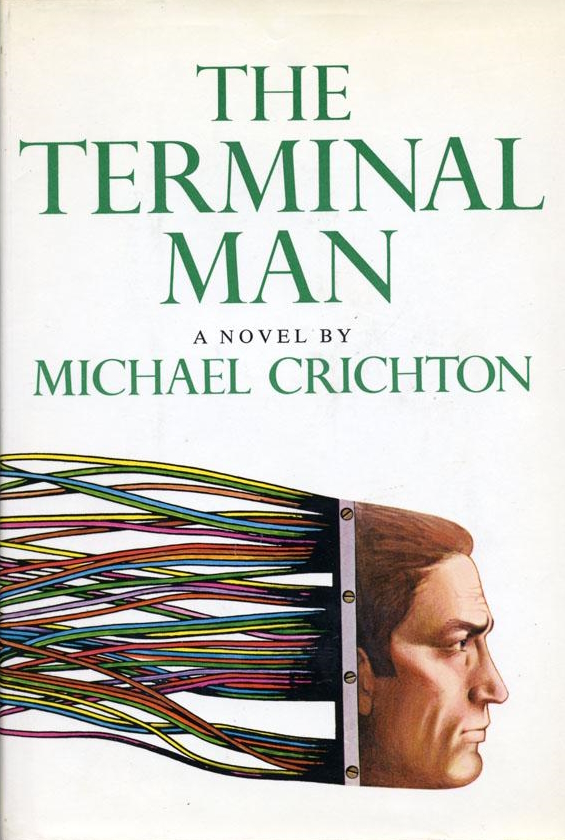
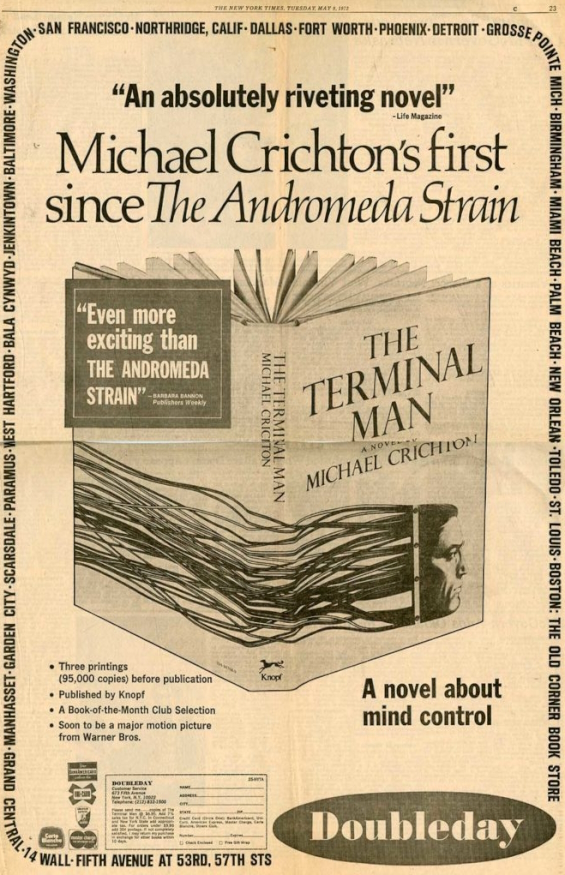
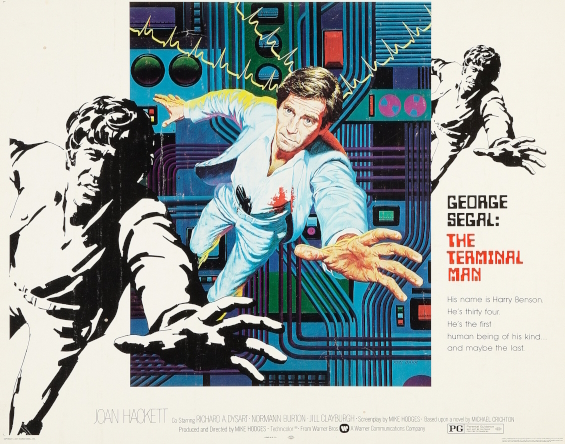
Posted by Scott D. Danielson Become a Patron!
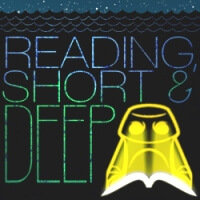 Reading, Short And Deep #270
Reading, Short And Deep #270

